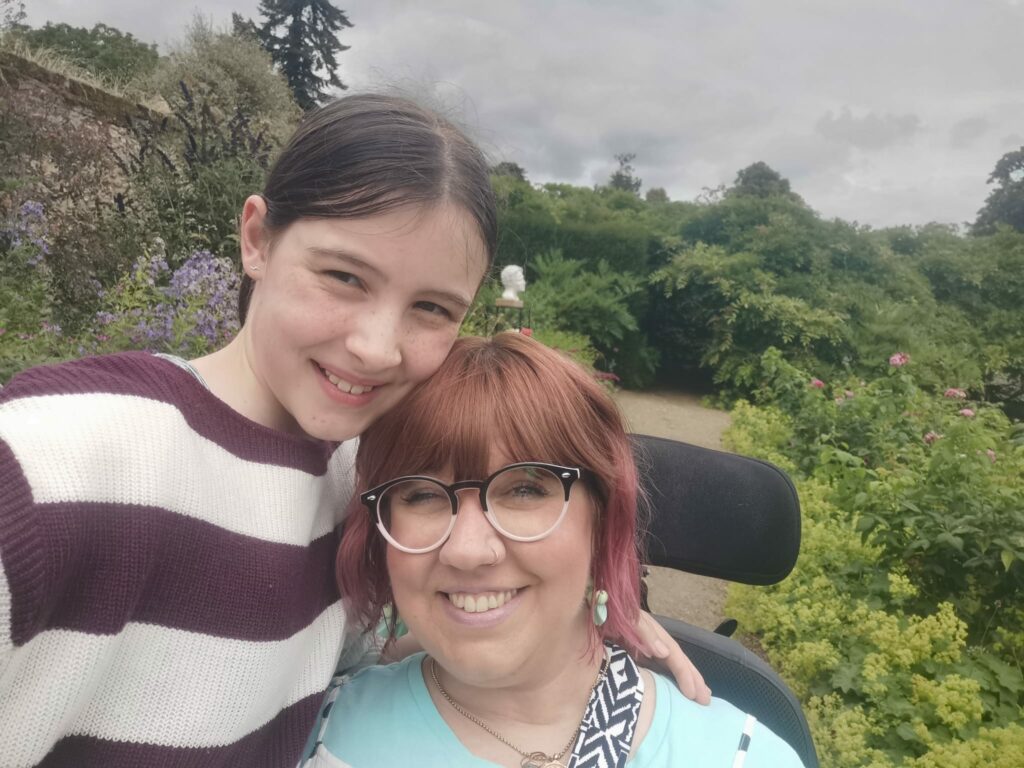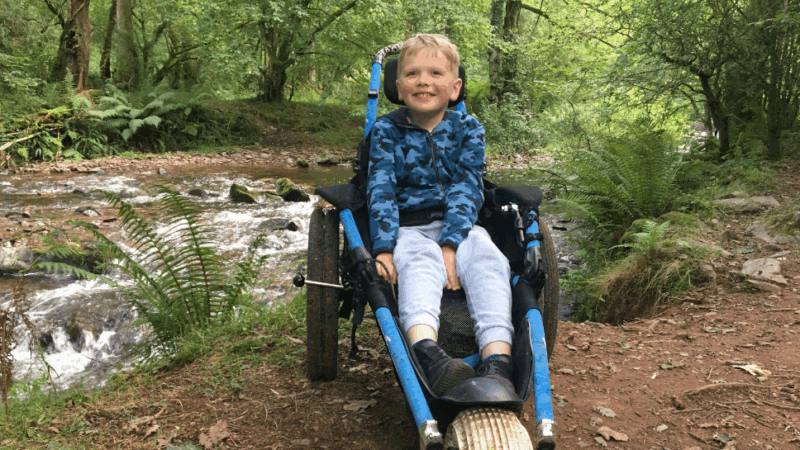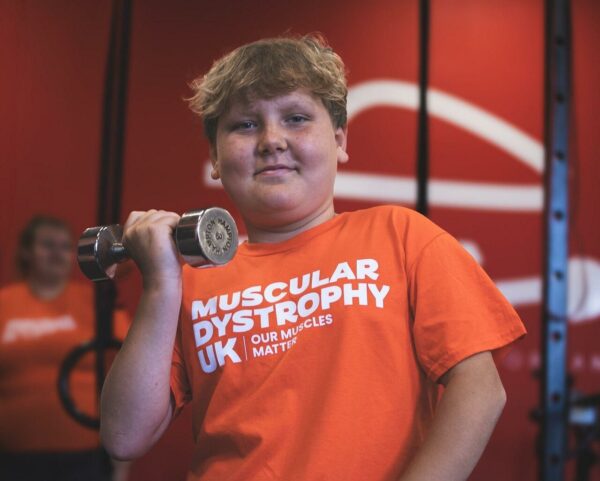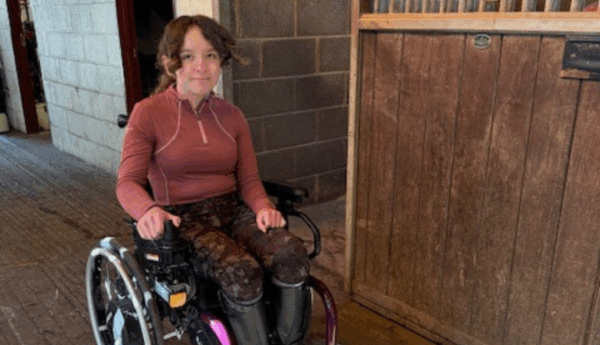Beth shares her journey as a mother living with spinal muscular atrophy (SMA). She looks back on the challenges of pregnancy, shares tips about the things that helped her look after her baby, and the bond she has with her now ten-year-old amazing daughter.
“We need to normalise disabled people having children”

I didn’t know how physically possible it would be for me to carry a child. But when my siblings began having children, my husband and I decided we wanted to start a family too. I went into our first appointment thinking the worst. I’d only ever seen one mum with SMA, but I was surprised at people’s willingness to help us make it happen. We now have an amazing ten-year-old daughter, called Edith, who I couldn’t be prouder of.
Pregnancy and delivery with SMA
The pregnancy itself was easier than I expected – the worst part of it was the morning sickness, but that’s the case for most people. I didn’t know that blood thickens when you’re pregnant, so as a full-time wheelchair user I was at a higher risk of blood clots. This meant I had to inject myself with blood thinners every day from being eight weeks pregnant to six weeks after giving birth.
Edith was delivered at 33 weeks as I ran out of space to carry her because my body is quite small, but she was a big baby and already weighed 5.3 pounds when she was born. As I had spinal surgery when I was a teenager, I couldn’t have an epidural, so I had to be put under general anaesthetic to have a caesarean. This meant my husband couldn’t be in the room for the birth, but it was the safest option, and we soon had a beautiful, healthy baby girl.
I was quite lucky with the medical support I received during my pregnancy. My consultant for SMA was lovely. He was honest about the risks involved but had a very ‘why not’ attitude. My pregnancy specialist had never had a patient with SMA, but she was great at communicating with my consultant when she needed to.
“The biggest issue is the lack of hoists in hospitals. It was a good job my husband could lift me onto the bed for all my scans as I’m not sure a hoist would have been available.”
Learning to do things my way
My biggest worry when we took Edith home was that people wouldn’t think she was my child. It was important to me that I could push Edith in the pram myself.
“I found a charity that adapted a pushchair for me so it could attach to my wheelchair, which gave me so much more independence.”
I was determined to do as much as possible myself when Edith was a baby. I found a high changing table so even though I couldn’t lift her onto it, I was the one to wipe her bum. Finding a breast-feeding pillow that worked for me was also important for our bonding.
As she got a little older and could support her own head, I would wrap baby carrying slings round me so she could ride on my lap. When she started walking I obviously couldn’t chase after her, but I was lucky I didn’t have a runner! Using child reigns helped to make sure she was safe when out and about.
Being a mum to a pre-teen
Now Edith’s older, things are a lot easier as we can have periods of time alone to just do mother and daughter things. We’re both into our fashion so love a good shopping trip and cake break. She shares my love of singing and performing so we have regular karaoke parties in the kitchen. My biggest parenting challenge now is having a child coming close to teenhood!
We need to normalise disabled people having children
It’s great there’s so many more disabled parents sharing their experiences. If I’d seen all the disabled mums that are out there when I was considering starting a family, I wouldn’t have had any doubts that I could do it. But that wasn’t the case. If I wasn’t a confident person, I could have been put off starting a family out of fear, and that would have been ridiculous.
“You can be disabled and a great mum. Just because you have to find different ways to do things and need help, doesn’t mean you shouldn’t have a child.”
Everyone assumed it would be high risk for me to have a baby, but pregnancy is always high risk and that doesn’t stop anyone else. To all those who want to be a mother one day; you know what you’re capable of. You’ve spent your whole life adapting and doing things people assumed you couldn’t. Do your research and listen to medical advice but remember to know your own mind and listen to yourself too.


